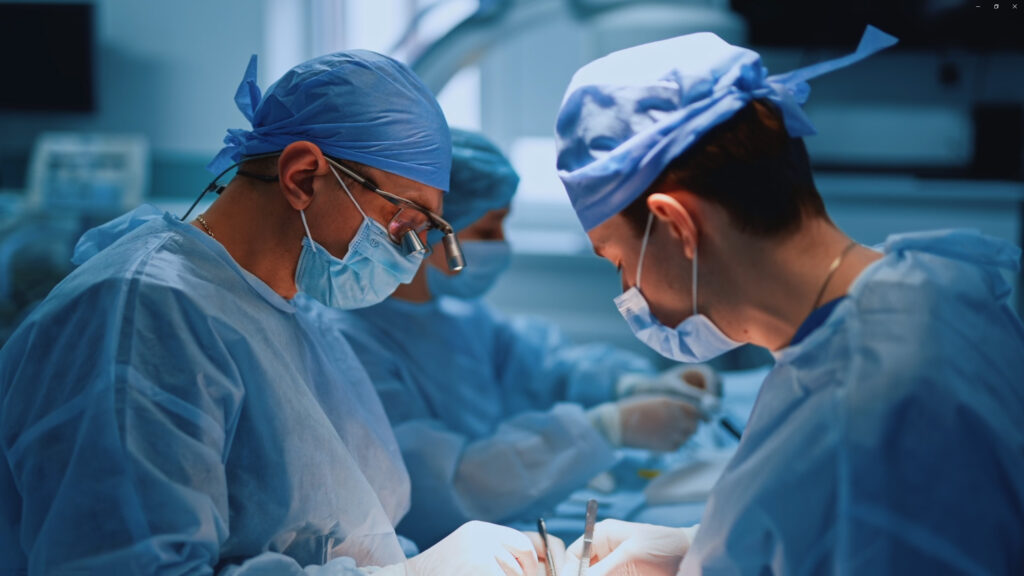When it comes to medical device manufacturing, precision, efficiency, and quality are non-negotiable. New medical device advancements are made every day, and with that comes new challenges.
Medical devices, ranging from testing equipment to surgical tools and implants, are vital components of modern healthcare, assisting in everything from routine procedures to complex surgeries, and each device must meet the highest standards of quality and reliability. As technology progresses, so does the complexity of these devices, presenting unique challenges in design, production, and assembly. Addressing these challenges requires a blend of advanced technology, real world expertise, and forward-thinking processes. This is where Ahaus Tool & Engineering comes into play, setting a standard in the industry for over 25 years.
The Role of Ahaus in Medical Device Manufacturing
Ahaus has not only been a participant, but a pioneer, in the medical device manufacturing industry. With experience spanning several decades, Ahaus specializes in designing and building special assemblies and automation equipment that are critical in the production of medical devices.
Medical device manufacturing is not just about assembling parts; it’s about creating outcomes that enhance and save lives. This understanding is at the core of Ahaus’ operations, influencing every aspect of our work from initial design to the final output.
Ahaus is able to partner with companies of any size, and with expertise in automation, workholding, design, machining, engineering, and project management, Ahaus is uniquely positioned to integrate with companies during any phase of the design, production, and assembly processes.
Pairing Precision with Efficiency for a Healthier Future
The importance of precision cannot be overstated when it comes to surgical devices. A fraction of a millimeter can be the difference between success and failure in a medical procedure. Ahaus’ automation equipment solutions ensure this precision, consistently producing parts that meet stringent industry standards. But the benefits of automation extend beyond just precision.
One of the most significant advantages of automation in manufacturing is the ability to increase efficiency. Automation equipment allows machines to operate continuously — around the clock if necessary. This not only speeds up the manufacturing process but also significantly expands uptime. Increased efficiency and output means getting more potentially lifesaving devices to the people that need them, in timeframes that might not otherwise be possible.
Automation maximizes employee productivity by freeing up human workers from the more repetitive and tedious tasks. This allows staff to focus on more complex and innovative aspects of production, such as quality control and process optimization. Embracing automation not only improves efficiency and productivity but also supports a more sustainable business model.
“For our clients, there is a lot of pressure to reach certain numbers, sometimes a million parts a year. We have to make sure each one has been manufactured correctly, to exact specifications. We have to build turnkey applications that can handle these demands and meet critical tolerances.” – Chuck Haager, Ahaus Director of Business Development
The Critical Collaboration in Medical Advancements
Every day, medical advancements are made, many of which directly result from improved capabilities in manufacturing processes. And
every day, these medical advancements save lives, so the collaboration between medical device manufacturers and the right automation company plays a vital role in ensuring that healthcare professionals have access to the most reliable and effective tools and patients get the potentially lifesaving care they need.
“We see ourselves as an extension of our clients’ engineering teams. Some companies have the capabilities to do a lot of things on their own but need help when they’re overloaded. Other times we start with a blank sheet of paper when we start the project. Either way, we are looking at it as a partnership.” – Chuck Haager

For healthcare professionals, the reliability and effectiveness of their tools can significantly impact the outcomes of their medical procedures. The integration of sophisticated manufacturing technology is not just a matter of efficiency; it’s a matter of patient safety and care quality. Embracing automation is not just a choice; it’s a commitment to excellence and a safer, healthier future for all.
The Ahaus Difference
Our tagline is “Built for Good,” and we really mean it. We want to do good, not just in our community of Richmond, Indiana, and good in terms of quality and reliability, but also good in the ethical sense, contributing positively to healthcare and society. As medical device technology continues to advance, the role of companies like Ahaus becomes increasingly crucial. We are not just manufacturing devices; we are crafting the devices and tools that significantly impact people’s lives, and that will define the future of healthcare.


